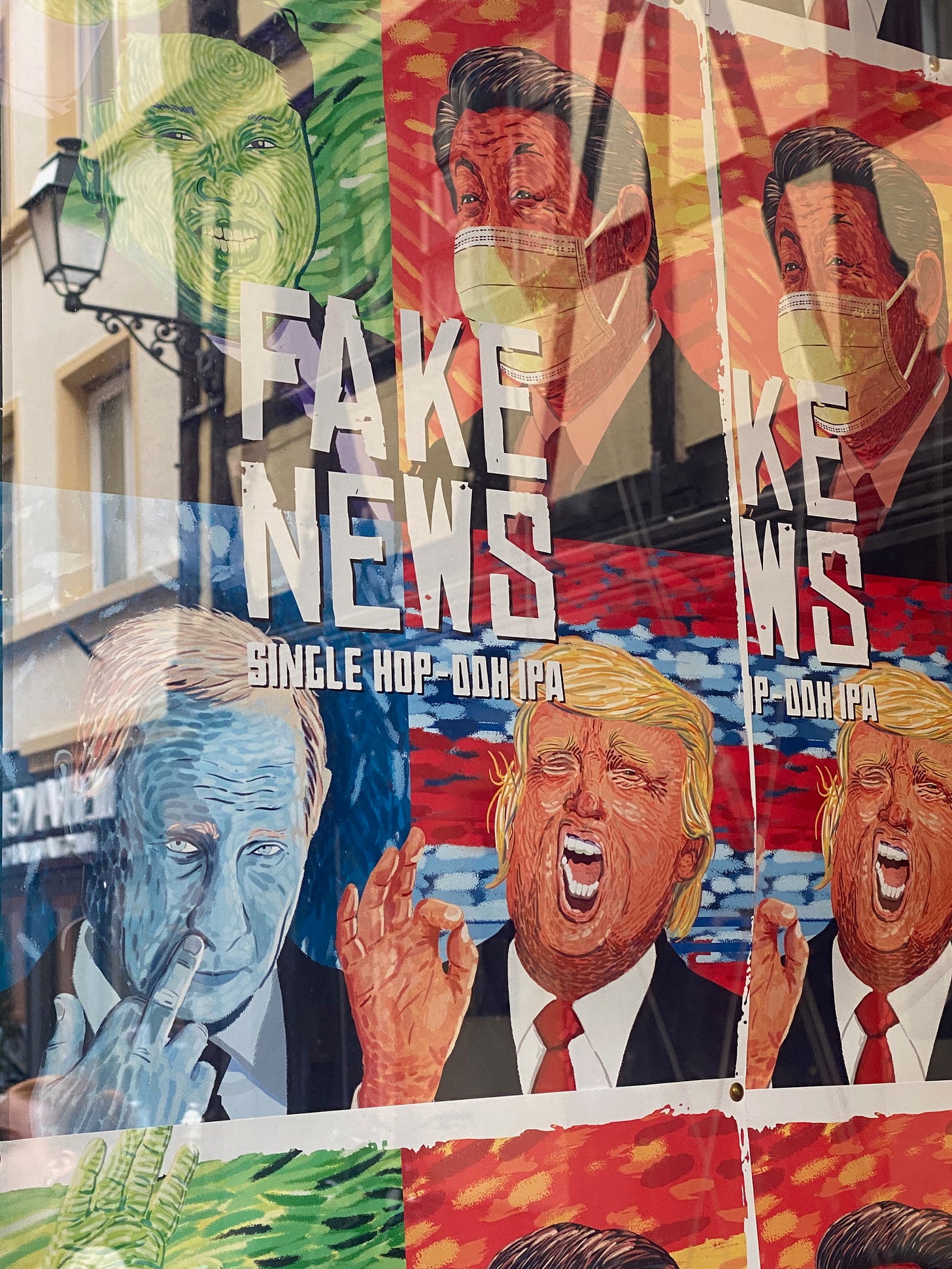Time for reflection
While travelling Europe, I was often asked how Americans could have elected someone like Trump. I had no idea, but the thought of his re-election made many very nervous about prospects for peace

Like many of us, the second election of Donald Trump to the U.S. presidency has left me deeply worried about the fate of the world.
Yes, the world. Americans are far from the only ones affected by Trump’s return to power. His presidency will will embolden Putin in Ukraine (and it won’t stop there) and Netanyahu in Gaza, Lebanon and Iran. Dictators and despots around the world will know that the U.S. president can be bribed, flattered or cajoled into turning a blind eye while they repress and exterminate minorities within their own borders or occupy the lands of their neighbours. Those who threaten the notoriously impulsive Trump run the risk of retaliation that could escalate beyond control.
I am reminded of a science-fiction short story that resonated strongly with me as a youth: The Weapon, by Fredric Brown. In the story, a stranger gives a loaded gun to the developmentally challenged son of a scientist working on “an ultimate weapon.” (Use the link to read the full story, which I won’t spoil here, but I think the lesson will resonate with you as well.)
Trump, obviously, is the child, his finger on the nuclear launch codes. But renouncing U.S. involvement in world affairs and in international alliances can be equally dangerous.
Whether I was in Brussels at the House of European History museum or in Normandy at dozens of memorials, museums and graveyards commemorating some of the 70-to-85 million who died in the Second World War, I was constantly reminded that the world’s worst tragedies are not due to the actions of a few individuals but also the inaction of many more. The early rise of Hitler was not possible without the acquiescence of western governments to his remilitarization programs and subsequent occupation of Austria and the Sudetenland (part of Czechoslovakia).
This animated map at the House of European History show the rapid spread of authoritarian and fascist control in Europe in just 23 years, from 1919 to 1942, when only the Finland, Iceland, Ireland, Sweden, Switzerland and the United Kingdom retained democratic control.
Trump likes to call himself anti-war. So, too, did British PM Neville Chamberlain, who called the 1938 Treaty of Munich between the U.K., France, Nazi Germany and fascist Italy “peace with honour.” A year later, the Nazis invaded Poland, followed by Denmark, Norway, Holland, Belgium, France, Romania, Yugoslavia and, eventually, Germany’s early ally, Russia.
Trump has already indicated he would achieve “peace” in Ukraine by letting Putin’s Russia retain significant portions of that country, rewarding aggression the same way Hitler was rewarded in the Treaty of Munich for annexing Austria and parts of Czechoslovakia.
Europeans, whose history is a never-ending tale of conquest by more powerful neighbours, understand the consequences of inaction. The appetites of those who hunger for power or money are never sated, Russia will not stop with Ukraine and the European Union will be either drawn in or fractured —perhaps both— by an expanding war.
Turning a blind eye is not an act of neutrality, but of complicity. Rewarding the aggressor is not peace with honour, but unconditional surrender… often of someone else’s land.
The difficult choice left to those of us who oppose the Trump agenda and fear its consequences is whether to close our eyes or raise our voices. I’m not just talking about war, but about justice, equality and the health of our fragile planet.
I empathize strongly with the desire to stick one’s head in the sand for four years and hope the Trump agenda goes away. But it will only spread unless we rise up to fight back. Like a cancer, authoritarian regimes such as those that Trump idolizes — Russia, Hungary, China and North Korea—will infect much of the world if we don’t resist, if we don’t fight for human rights, our democratic systems, and respect for international laws and standards.
Authoritarianism and fascism CAN happen here. It WILL happen here (and by that I mean everywhere) if we give up the fight because of one election. So please try to find a way to fight back, there are hundreds of millions of people whose rights, and even their lives, may well depend on it.
⚜ ⚜ ⚜
Sorry for this brief side trip from my European travels, but Tuesday’s vote made me feel like the Earth had stopped spinning on its axis. In our next installment, we return to Normandy for one last look before heading to the French town of Saintes and the capital of wine country, Bordeaux, where my European adventures end. See you on the road…



This is an important piece, Peter. Indeed, the horror of Tuesday’s US election results should not paralyze us. It is also of great concern that traditionally progressive political parties, including the Democratic Party in the US, will continue to sell out their base and drift to the right hoping to lure voters for next time around. Next challenge for Canadians is to keep « The Weapon » out of the hands of PP (short for poo-poo head, no doubt).
QUOTE: The authoritarians want us to retreat. They build their power by fabricating constant crises that exhaust us and drive us into despair and isolation. Hannah Arendt wrote that loneliness, or “the experience of not belonging to the world at all,” is “what prepares men for totalitarian domination in the non-totalitarian world.” Trump will keep creating crises, to exhaust us and drive us to retreat. Liu’s recommendation: “Rest. Breathe. Grieve. And then reengage, to fight for the lives of all who are scared and threatened by this regime.”
Dana Milbank, Washington Post
Free link:
https://wapo.st/48D2eNL